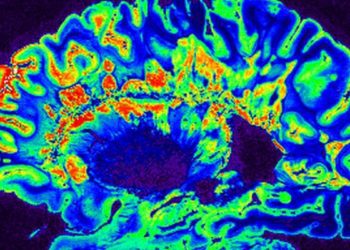#VisualAbstract: Association of Initial Disease-Modifying Therapy With Later Conversion to Secondary Progressive Multiple Sclerosis
1. In this case-control cohort study, treatment with glatiramer acetate, interferon-beta, fingolimod, alemtuzumab, and natalizumab all led to reduced conversion to secondary progressive multiple sclerosis (MS) compared to no Disease-Modifying Treatment (DMT).
2. Treatment with fingolimod, alemtuzumab, and natalizumab had reduced conversion to secondary progressive MS compared to glatiramer acetate and interferon-beta.
Evidence Rating Level: 2 (Good)
Study Rundown: Patients with relapsing-remitting MS generally convert to secondary progressive MS within a few decades of initial diagnosis. Though Disease Modifying Therapies (DMTs) are well-validated to treat MS symptoms and prevent exacerbations, it is unclear if they similarly reduce the conversion to secondary progressive MS. In this case-control cohort with prospectively collected clinical data, patients who received any DMT had reduced conversion to secondary progressive MS than those who did not. Further, those who received DMT closer to symptom appearance tended to have reduced conversion compared to those who started DMT later. The more potent DMTs studied (fingolimod, alemtuzumab, and natalizumab) had reduced conversion compared to glatiramer acetate and interferon-beta.
This study utilizes the newly set consensus definition for secondary progressive MS, and thus may be more accurate than similar studies completed previously. However, the study was limited by its cohort design and strict exclusion criteria that greatly reduced the proportion of patients eligible for study.
Click to read the study in JAMA
Image: PD
©2019 2 Minute Medicine, Inc. All rights reserved. No works may be reproduced without expressed written consent from 2 Minute Medicine, Inc. Inquire about licensing here. No article should be construed as medical advice and is not intended as such by the authors or by 2 Minute Medicine, Inc.






